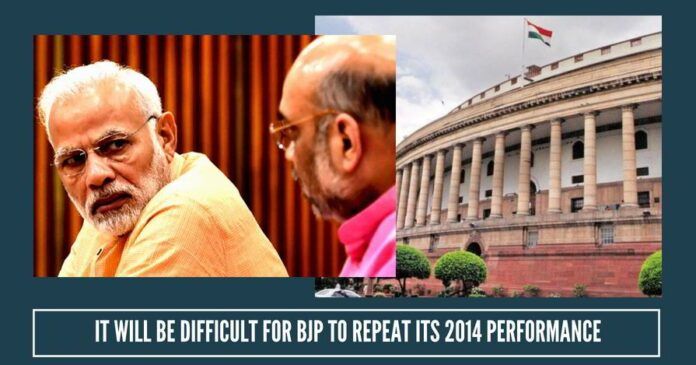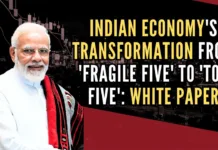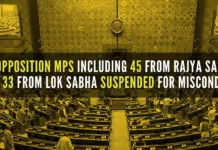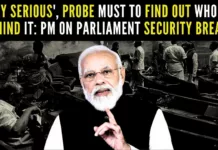
Analyzed below are the developments in opposition across the nation which should make the BJP happy, but if it makes the party complacent there would be a price to pay.
The closer the Lok Sabha election gets, the dimmer the prospect of a pre-poll opposition front becomes. The euphoria which had been generated by the photo-op of various opposition leaders on a single stage at the swearing-in ceremony of HD Kumaraswamy in Bengaluru, raising hands in unison, has already dissipated. The realisation should be settling in that the best case scenario for the opposition parties is a coming together after the election result to thwart the Modi Government from getting a second term. If there had been any lingering hope of a pre-poll understanding, it was shattered by two senior opposition leaders recently, Sharad Pawar of the Nationalist Congress Party and Sitaram Yechury of the Communist Party of India (Marxist) who dismissed the idea.
The influential regional parties do not even have a common agenda of development or governance; the only binding factor is their desire to see Modi’s back.
Nobody barring a fistful of parties wants a pre-election alliance with the Congress. The Samajwadi Party, which contested the Uttar Pradesh Assembly poll in partnership with the Congress, is not enthusiastic about a similar experiment for the Lok Sabha contest. The Bahujan Samaj Party has decided to contest against the Congress (and the BJP of course) in the forthcoming Assembly poll in Madhya Pradesh. If this situation holds out until the general election, the Congress would be staring at another rout and a further decline of its stature nationally and in the eyes of the regional parties.
The problem for the Congress is that it brings nothing on the table for the two regional outfits in Uttar Pradesh. If the SP and the BSP were to fight unitedly in the State, it would mean a division of seats between the two. Why then would they want a third partner who will seek to further dent their seat share without adding meaningfully to their victory prospects?
The Trinamool Congress is unlikely to tie up with the Congress either, in West Bengal. Its leader Mamata Banerjee nurses dream of leading the coalition, and this would not fructify if she tied up with the Congress which would project its president Rahul Gandhi as the chosen leader. The Congress may at best align with the Left in the State, but then the Left is already a spent force there, and two spent forces coming together is not going to create a political upheaval. Besides, there is a strong lobby within the CPI (M) which strongly disfavours an alliance with the Congress.
Faced with the prospect of fighting it alone, the Congress is pinning its hopes on understandings with the NCP in Maharashtra, the DMK in Tamil Nadu and the National Conference in Jammu & Kashmir. In Maharashtra, it hopes to cash in on the Bharatiya Janata Party-Shiv Sena friction, and in the southern State, it prepares to exploit the divisions in the ruling AIADMK and gain something from tacit backing from actor-turned-politician Kamal Haasan. But even in these combinations, barring in Maharashtra, the Congress will be the minor player and it can hardly hope to add significantly to its individual tally and stake claim to form a Government at the Centre it wants to lead. Its only glimmer of hope in the grim situation in Bihar, where it will partner Lalu Prasad Yadav’s party and hope to benefit from rumours that Nitish Kumar’s Janata Dal (United) is unhappy with his party’s alliance with the BJP. In Karnataka, the Congress’s alliance with the Janata Dal (Secular) has got off to an uneasy start and the coalition cannot be taken for granted.
Despite all the hyperbolic talk, even regional opposition unity is not complete.
With the Congress apparently out of the reckoning, attention shifts to the powerful regional outfits. But since neither of them have any real influence outside their respective home States, it is difficult to understand as to how they can help each other and later come together as a united front against the BJP. The leadership issue is just one impediment. These parties do not even have a common agenda of development or governance; the only binding factor is their desire to see Modi’s back. The country’s contemporary political history shows that such glue often fails to unite — and even if it does, it does not hold on for long. Are the voters prepared for a spell of instability which makes governance its primary victim?
And, despite all the hyperbolic talk, even regional opposition unity is not complete. One of the major regional parties, the Biju Janata Dal in Odisha, has shown no inclination to join the opposition bandwagon. Even K Chandrashekhar Rao of the Telangana Rashtra Samiti, for all his initial efforts at crafting a united front, has decided to now take it easy. He did not turn up in Bengaluru reportedly because he didn’t wish to share the stage with either the Congress or the Telugu Desam Party of Andhra Pradesh. While on this issue, it must be kept in mind that the DMK in Tamil Nadu could well swing towards the BJP-led NDA in case the BJP decides to dump the AIADMK.
These developments should make the BJP happy, but if it makes the party complacent there would be a price to pay. As it is, the BJP will find it difficult to repeat its near-peak 2014 performance in the northern and the western States. Opposition disunity apart, the ruling party has to make significant gains in the eastern States of Odisha and West Bengal and ensure that it does not lose too much in the States it controls if it hopes to retain power at the Centre. The coming State polls in Madhya Pradesh and Rajasthan will test if the party is prepared for the 2019 challenge.
Note:
1. The views expressed here are those of the author and do not necessarily represent or reflect the views of PGurus.











UP & Karnataka will give headaches to BJP because of the imminent alliances of the (SP+BSP in UP) & (JDS & Congress) in Karnataka In both these States, BJP may end up with (Minus 60 seats) from its 2014 tally
–
This (minus 60) should be compensated by forging strong alliances with (AIADMK in TN) & the (actor in APs)
BJP may garner more seats in the NE too than what they obtained in 2014
–
Kerala, WB, Orissa may not yield more unless BJP forges an alliance with BJD in Orissa
–
BJP+JDU should be kept intact in Bihar to get a clean sweep of Bihar
–
Jan Dhan, PM Mudra Yojanas & other welfare schemes have apparently added to BJP’s mettle.
–
A well coordinated GROUND WORK by the RSS is imperative to maintain the 2014 tally
–
PMMY has helped generation of 4 to 5 crore new jobs in the unorganized sector
–
LET US HOPE & PRAY BJP RETURNS WITH ABSOLUTE MAJORITY
Arithmetically speaking much of the above make sense.. The issue is whether Modi feels the game is all about ensuring election wins or beyond that.. The election winning machinery that Amit Shah runs is largely perfect and hums well.. But the kind of alliances it makes , the breakaway factions it is willing to bed with, the third grade scums from other parties who join BJP promising election wins is not helping Modi’s promise of governance.. Arithmetic and TINA factor is indeed manageable and reassuring but voters in this country are more keen to revel in the fact that they manage to teach a hard lesson to someone than worry about installing someone better than the present incumbent…
Therefore, it is time BJP cleans up its act at the ground level and forget taking for granted its core supporters.. Let BJP understand that many of its middle class supporters vote for NaMO and less for BJP.. They prefer a man with clean intent and perhaps support from principled RSS helps.. Certainly not for BJP as a party which largely has clowns and defectors from all parties today.. It is no longer a party with a difference.. The best proof is NaMO struggling to get 12 clean efficient ministers and no BJP ruled state having more than 1-3 worthwhile clean and efficient ministers including CM.. The rest of the party is thugs and goondas.. Every corporator from BJP and MLA seeks votes in the name of Modi and behaves like a lord…
Amit shah can mobilise people and can build largest base etc but is incapable of attracting and promoting the clean and respectable ones at the ground level.. Every corrupt man and business today contributes protection money to BJP instead of congress etc in the past.. What else has changed to ensure that people will believe the promises Modi is about to make for 2019??
Almost correct analysis one place there are many people who would have voted for BJP with or without Modi. Yes there is a dearth of mature and respectable faces in BJP Govt. Existing appear not to go beyond his dictates and incapable of taking any independent decision leas fear of being thrown out, as most of them have no electoral base but picked up for their TV debating skills.
Masses in India are poor and are not affected by Govt propaganda but are wise enough to differentiate between previous nad present Govt
As far main reason to bring in Corruption at low and middle level is as it is. As far corporate no company can servive without paying to ruling party ,so what has changed ? nothing at all
The reign of terror unleashed by his supporters calling everybody deshdrohi have alienated many
Goondas and scum gathered from other parties believed BJP raj is going to last forever and have become more brazen and arrogant all in all shaking the faith
In addition, he has selectively sidelined BJPs traditional leadership
It is only RSS that can carry it further and probably schange in leaderssip is eminent to survive
BJP FAILED TO ENTHUSE ITS CORE VOTERS IN LAST 4 YEARS OF ITS RULE.IT HAS BECOME A PART 3 OF UPA.NO CORRUPTION CHARGES LEVELED ON UPA GOVT WERE PROVED NOR CORRUPTS PUNISHED.ART-370 NOT REMOVED,UCC NOT INVOKED AS PER CONSTITUTION GUIDELINES.IT THINKS BY DEVELOPMENT IT CAN WIN ELECTION ITS SADLY MISTAKEN.INDIAN VOTERS VOTES ON PERCEPTION AND TODAY PERCEPTION IS AGAINST MODI BJP AND ITS GOVT BUT IT IN ITS INTEREST THAT IN NEXT 280 DAYS IT CAN RECOVER ITS VOTE BANK BY SLEW OF MEASURES
I fully agree. Also in departments corruption and nepotism is rampant. Middle class BJP may not come out to vote to the detriment of party and nation.